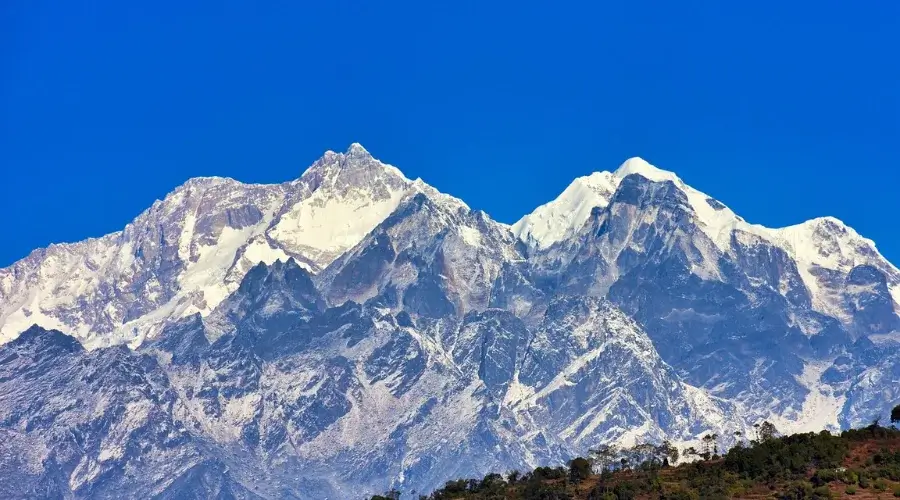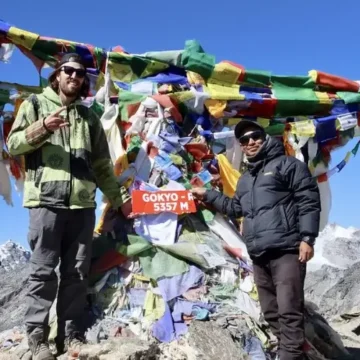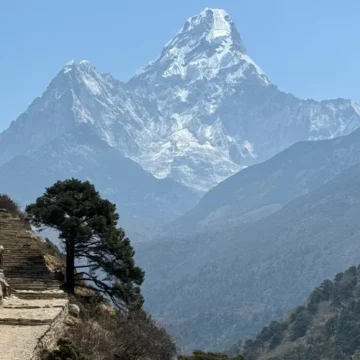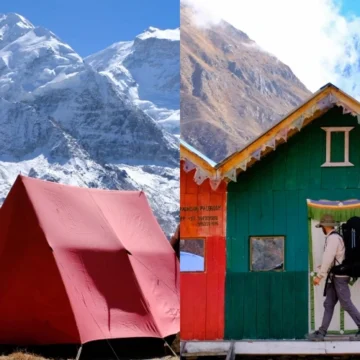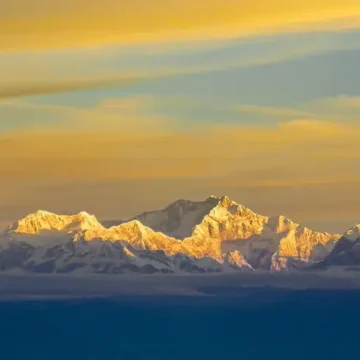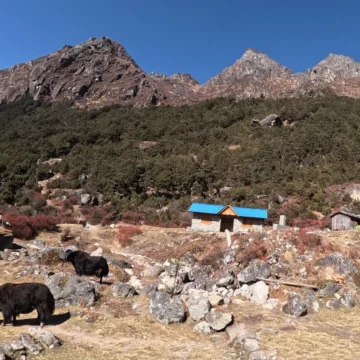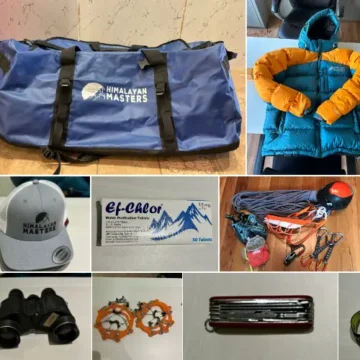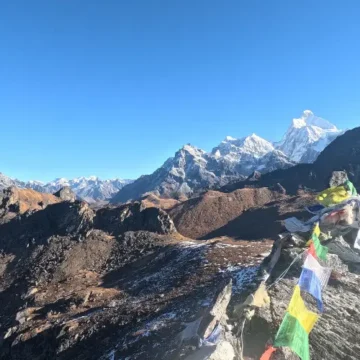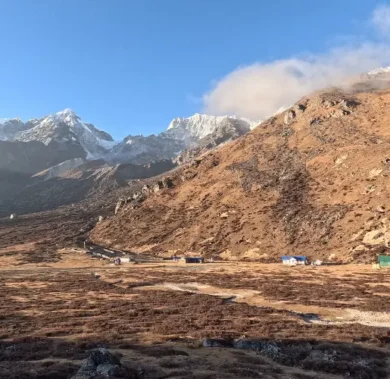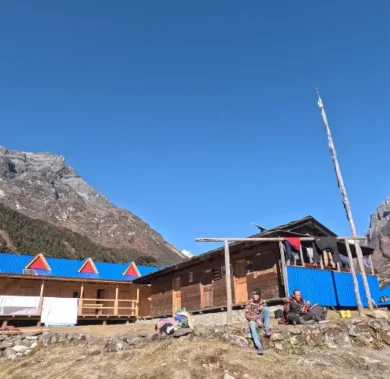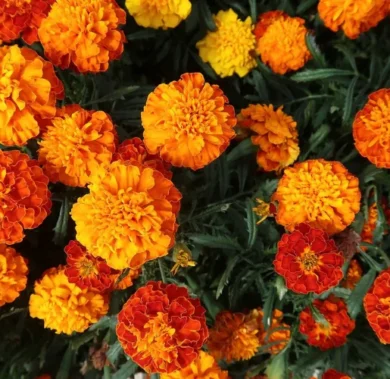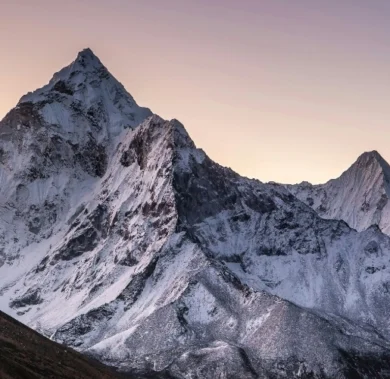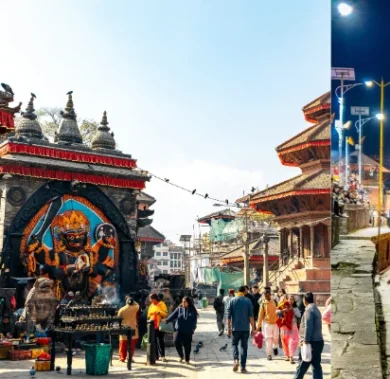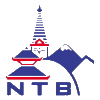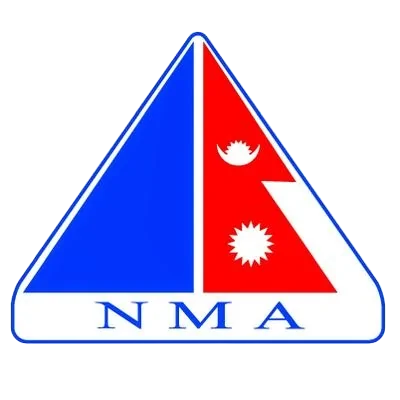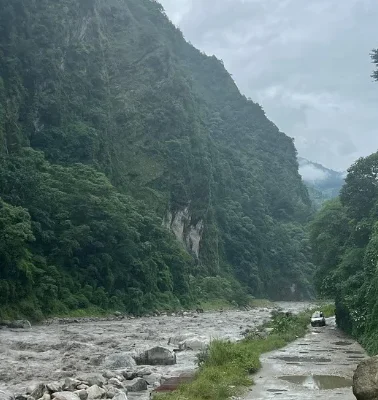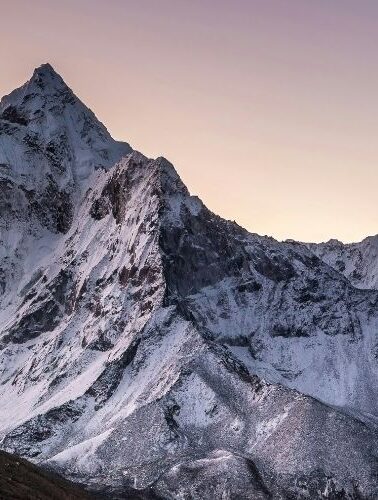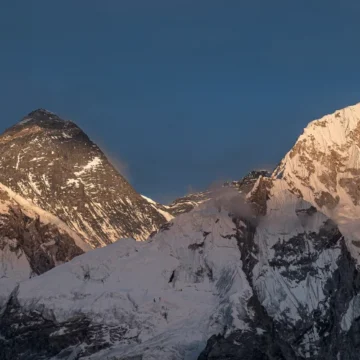
Kanchenjunga Trek Difficulty and Overcome Tips
Table of Contents
Kanchenjunga Trek is among Nepal’s most remote and difficult trekking routes. Currently, it is getting popular among adventure seekers. This is the best hidden secret Nepal has kept so far, and the Kanchenjunga Trek difficulty level is also considered a demanding trek.
Located in the Far-Eastern north of Nepal, the Kanchenjunga circuit trek is a long trek in the rough Himalayan landscape. Now, you cannot imagine such an easy trek to the mountain. However, this Kanchenjunga Trek Difficulty can be overcome with the right preparation and guidance from the Himalayan Masters team.
How Hard is Kanchenjunga Trek?
The travel experts of Nepal have classified the trekking regions of Nepal as “Easy”, “Moderate”, and “Difficult” based on the landscape, altitude, and distance. Among them, the Kanchenjunga Circuit Trek has been graded as a difficult trek in Nepal.
Kanchenjunga has been kept as a restricted region of Nepal (need a special Kanchenjunga Trek Permit). For this reason, trekking in this remote region is quite challenging.
Along with tough ascent and descent, crossing the mountain pass is one of the hardest things on this trek. This means you must have some experience and skills to use the mountain gear.
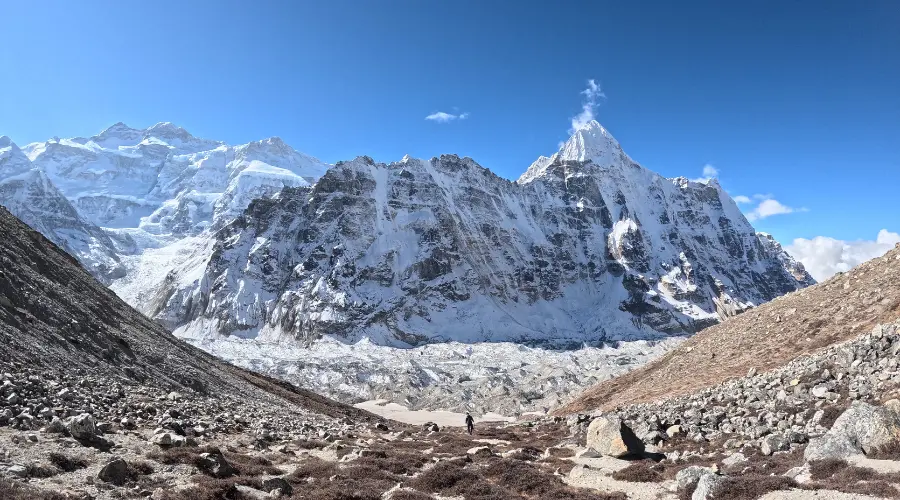
Factors that affect Kanchenjunga Trek Difficulty
The difficulty of the Kanchenjunga trek, or any trek in Nepal, can be categorized based on different factors. For some trekkers, a long walking distance and a long time could be really strenuous. However, for some, navigating in rugged mountains can be really challenging.
Likewise, high elevation, remoteness, solitude, unpredictable weather, etc., can be upsetting factors. It varies based on each individual.
Some of the factors determining the difficulty of the Kanchenjunga trek are discussed below.
Kanchenjunga Trek Distance
A strenuous long trek distance is one of the major difficulties of this trek.
Kanchenjunga Circuit Trek distance to and from Kanchenjunga Base Camp is about 200 km. This might be among the longest base camp treks in Nepal.
From Taplejung, the walk to the base camp is about 2 weeks long journey. The walking time is 6 to 8 hours daily, covering 15 to 20 km daily. The daily distance covered is almost similar to other popular treks in Nepal, such as the Everest base camp trek. However, the walking days are long (around 3 weeks), and thus, it becomes quite demanding.
Kanchenjunga Base Camp Elevation
The lowest elevation during this trek is Kathmandu, which is 1400 meters. From there, we start climbing 500 to 1000 meters each day and reach Kanchenjunga base camp (North) at an elevation of 5140 meters.
This is a high-elevation trek, where the oxygen level drops almost to half, making it very hard to breathe. For someone who has never been exposed to a higher altitude, this drop in air pressure can create difficulty breathing, thus developing different symptoms of altitude sickness among the trekkers.
Symptoms like:
- Headaches
- Nausea
- Vomiting
- Body pain
- Shortness in breath
- Getting tired quickly, etc.
If you do not follow proper precautions, there is a higher chance of altitude sickness at higher Kanchenjunga base camp elevation, i.e., one in every three trekkers. And, if the symptoms start to get worse, you may develop symptoms like fainting and vomiting in the worst-case scenario.
Tips to prevent altitude sickness in Nepal
- Keep yourself hydrated by drinking a lot of warm water. If not possible, you can even drink cold water, but make sure that your body gets 3-4 litres of water each day.
- Ascend slowly and gradually. Give your body enough time to acclimatize to the increased elevation.
- Include some rest days in your Kanchenjunga Circuit trek itinerary so that your body can acclimate to the depleting oxygen level.
- Avoid all kinds of alcoholic drinks and any food that keeps you dehydrated.
- Do not take a bath at high altitude, as it may eventually lead to altitude sickness.
What will happen if I catch altitude sickness anyway?
Even if you take all the precautions, the chances of altitude sickness cannot be ignored completely.
So, if you catch altitude sickness, you must stop trekking to the higher altitude and rest properly.
If the symptom is severe, the guide takes you to a lower altitude. If it is out of control and you do not feel better even after meditation, the team arranges a Kanchenjunga Base Camp helicopter flight for rescue.
Flight directly takes you back to Kathmandu or any nearby hospital so that you can receive immediate treatment from the doctors. The team of Himalayan Masters will be with you throughout the emergency period, so you do not need to worry.
NOTE: Although altitude sickness might sound scary, the instances of altitude sickness among trekkers trekking with Himalayan Masters over the past decade are really low. So, you will likely be fine even at the 5,140 meters of Kanchenjunga base camp elevation.
Also, you do not have to worry about any helicopter rescues. The flight operators are well-trained for high-mountain rescues.
Remoteness
We have already mentioned that the Kanchenjunga route is among the most remote regions in Nepal, thus increasing Kanchenjunga Trek Difficulty.
Even the basic facilities of bathrooms, showers, and internet become a luxury when you are on the trek. We cannot even buy basic essentials like tissue paper on the trek, and you need to carry everything from your home or Kathmandu.
If you are committed to completing this trek, then luxury is not what you should look for. Be ready to live in small wooden houses that have single beds and nothing else. The bathroom is also small and Indian-style and might not be clean. Thankfully, they serve good Kanchenjunga Trek food.
You will meet the locals who have been adjusting to this lifestyle for years. So, forget about the luxury you are currently experiencing and be ready to commit yourself to nature and even find joy in Kanchenjunga Trek Difficulty.
Weather and Temperature
The Weather and temperature are the major factors that determine the difficulty of the Kanchenjunga Circuit trek. Autumn and spring are the best seasons for trekking in Kanchenjunga when the weather is stable, and the temperature is warm enough for the trek. The views are also clear, and you can walk confidently when the weather is in your favour.
If you trek in summer (during monsoon), the trail is slippery due to monsoon rain. And winter is full of snow in the areas above 2000 meters. Walking for about 3 weeks in such snow is not a joke.
So, even if some travel agencies claim that the Kanchenjunga circuit trek is possible throughout the year, we highly suggest that you avoid the summer and winter treks.
If you are in Nepal during summer and winter, you can rather go for other short and easy treks like the Mardi Himal trek and Ghorepani Poon Hill trek.
Camping
Although basic, the teahouse accommodation in Kanchenjunga is more comfortable than camping.
Camping trips come with a lot of serious challenges, especially during the summer and monsoon season. So, if you are a newbie trekker with very little experience of high-altitude hikes, don’t stay in camps for the entire tour.
Aim to stay in teahouses whenever possible and set the camps for clear Nights with stable weather. Otherwise, a camping trek might increase your Kanchenjunga Trek Difficulty.
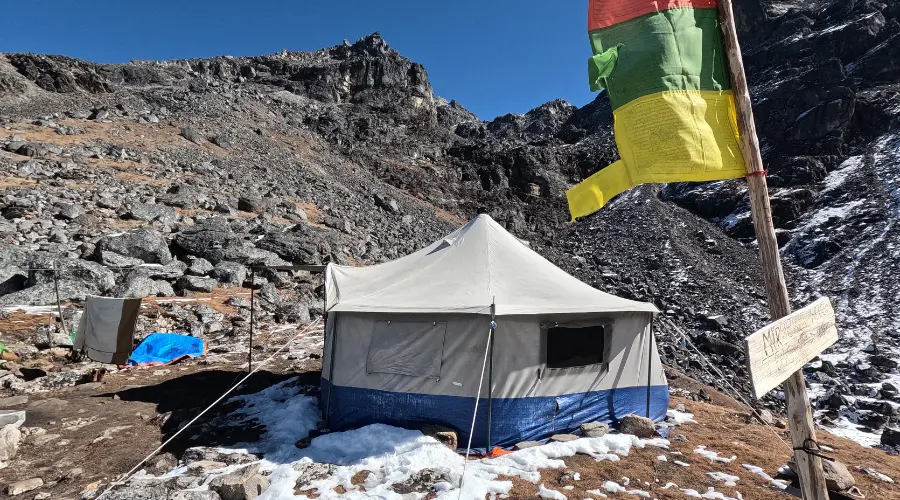
Tips to overcome Kanchenjunga Trek Difficulty
Kanchenjunga Trek is one of the most pristine, untouched trekking destinations in Nepal. With the jaw-dropping sceneries and experiences come a few challenges due to the wilderness of the region.
To overcome those challenges, here are some of the tips to ensure your safety and make this trek memorable.
Carry pulse oximeter
This small device measures your heart rate and oxygen level, which can be very useful while you are at a higher altitude. We have seen that the use of oximeters has increased greatly after COVID-19. This small and easy-to-use device can come in handy while you are on the trek.
Acclimatize properly
Every travel expert keeps giving you the same suggestion, i.e., that acclimatization is the key to high-altitude trekking. Don’t walk more than 5-6 hours each day, and give yourself enough time. Your body should have a few rest days, even if that adds a few more days to your Kanchenjunga Circuit Trek itinerary.
Be careful while planning
During the Kanchenjunga circuit trek, you can only use the things you carry. Especially during the camping day, you will be using and eating only the stuff that you can carry. This is why you need to be very careful while packing for the trek.
Make sure that you contact our guide after booking the Kanchenjunga Circuit Trek and get the detailed packing list so that you can prepare yourself accordingly.
Choose your food carefully
The healthy green food keeps you energized and active throughout the Kanchenjunga circuit trek route. At a higher altitude, a slightly wrong choice of food might make you very sick.
Dal Bhat is the best-recommended food that is rich in calories. Also, you should order food that has higher water content. Even during that daytime, keep eating some chocolate bars and juice that you have carried from the lower altitude.
Further, avoid eating meat or anything that is difficult to digest.
Listen to your guide
Your guide is your best friend during the trip. Especially while you are in the unknown land, make sure that you listen to everything the guide has to say.
If you experience the slightest difficulty in the movement of your body, make sure that you inform your guide immediately so that the necessary precautions can be taken.
Travel With Himalayan Masters
It is impossible to plan such a difficult trek in the Himalayas by only reading a blog. Since we were very well informed of your dilemma during the planning phase, we are committed to providing our guests with the maximum information.
You can mail your queries to [email protected] or even leave a comment here. We will be happy to assist you throughout the booking procedure or only for general information.
Want to know more?
Speak to an Expert


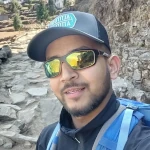


Sandip Dhungana
Nepal 🇳🇵
Whatsapp: +977-9823636377

